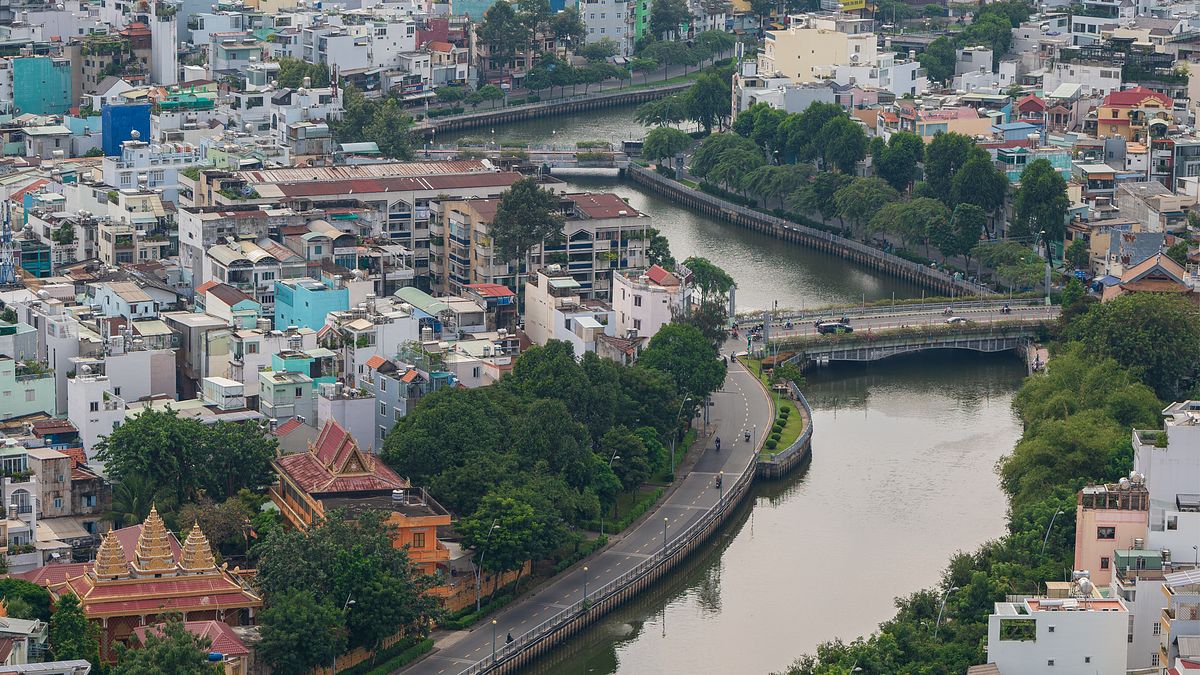Water has no hometown.
It flows through streams, oceans, swamps, clouds, fruit, blood and breath, no place more or less its home than any other. It flows through Nhiêu Lộc-Thị Nghè as the canal moves through Saigon the way a rooster cry navigates an alleyway.

Photo by Alberto Prieto.
Named after Nguyễn Thị Khánh and her husband, Nghè, who helped Vietnamese first settle the area as well as the legend of Đặng Lộc who ferried children across it to the Nhiêu School in later years, the canal once inspired young poets and writers who praised its clear waters that revealed perch, snakehead and mollusks. When the city was young and idealistic, it flowed fresh as clean parchment waiting to be scrawled with songs, stories, wedding invitations and records of rice harvests.
But as the city grew, homes began to encroach on its banks. Poverty spilled out from underneath corrugated roofs and Nhiêu Lộc-Thị Nghè became sullied with sewage, plastic bags, beer cans, and barge oil. Stink engulfed the surrounding neighborhoods. Its water ran black like the ink streaking an overdue bill slipped beneath a locked door.

In 2005, while renovation was still going on, the water quality was still dismall. Photo via Thanh Niên.

Trần Khánh Dư Bridge crossing the canal to connect Tân Định and Phú Nhuận. The canal was quite polluted in 2007. Photo via Thanh Niên.
In early 2002, a plan was launched, more than US$350 million spent, over 50,000 people relocated. Dredging machines rasped their saurian maws across its bed while men with rakes and poles peeled back matted gnarls of trash from its surface. Embankments, drains and sewers were installed, trees planted and sidewalks placed. Dengue and crime fled from its shores.
Today, it’s one of the nicest places in Saigon to stroll. The stench has been whisked away, the tatters of trash drifting across its stained surface are outnumbered by the fish flitting below. You cannot drink from it, should not eat anything caught in it (despite the plentitude of fishing poles dropped in from bridges) and distributaries remain unmitigated. It’s not perfect, but it's nice. It will never fulfill the lofty potential it once held, but its descent into disgust has been reversed, and it has the ability to improve more.
I look down into it and catch my reflection in its rippling waters and recognize it as a metaphor for my life.

















